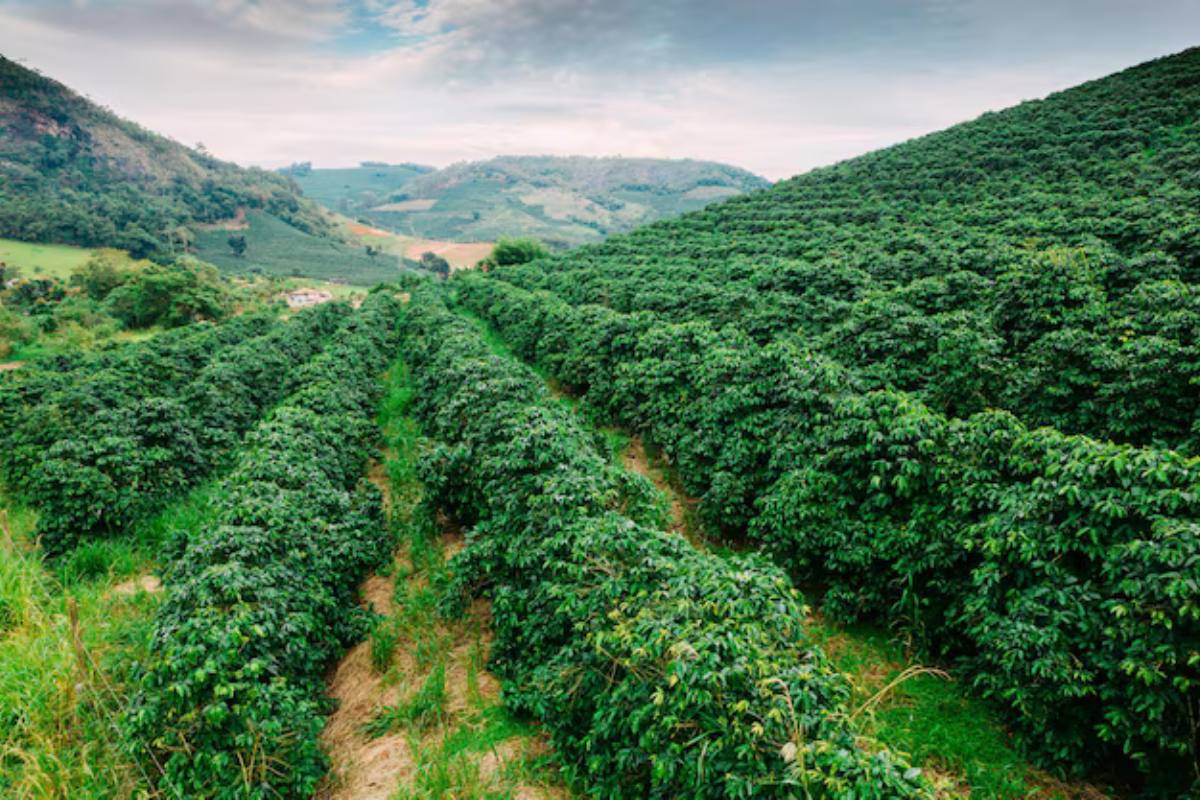Brazil isn’t just the world’s largest coffee producer — it’s a country where coffee is woven deeply into daily life, social interactions, and even national identity. From expansive coffee farms in Minas Gerais to bustling cafés in São Paulo and Rio de Janeiro, Brazilian coffee culture is as rich and diverse as the country itself.
A Brief History of Coffee in Brazil
Coffee arrived in Brazil in the early 18th century, introduced from French Guiana. By the 1800s, Brazil had become the world’s leading coffee producer — a title it still holds today. Coffee plantations (called “fazendas”) became the backbone of Brazil’s economy and played a significant role in its history, migration, and development. Over the centuries, coffee shaped not only the landscape but also the cultural identity of many regions.
Coffee Production in Brazil: The Numbers
- World’s #1 producer, responsible for about 35% of global coffee production.
- Over 300,000 coffee farms, ranging from small family plots to vast industrial plantations.
- Produces both Arabica (about 70%) and Robusta (Conilon) (about 30%).
This massive production diversity ensures that Brazilian coffee can cater to various markets, from commodity-grade coffee to high-end specialty lots.
Main Coffee Regions in Brazil
Minas Gerais
Known for specialty coffees with chocolate, nutty, and caramel notes. Regions like Sul de Minas and Cerrado Mineiro are internationally acclaimed for their consistent quality and innovation.
São Paulo (Mogiana)
Coffees with balanced body and sweetness, often with red fruit notes and smooth finishes.
Espírito Santo
Major producer of Robusta/Conilon, but growing rapidly in specialty Arabica thanks to improved techniques and focus on quality.
Bahia
Innovative farming with high-tech irrigation, producing bright, fruity coffees with excellent clarity and sweetness.
Paraná
Southernmost coffee-growing region, known for rich, full-bodied flavors and increasing specialty production.
Unique Characteristics of Brazilian Coffee
- Lower acidity: Due to climate and elevation, Brazilian coffees are often smoother and less acidic.
- Nutty, chocolatey profiles: Common tasting notes include hazelnut, cocoa, and caramel.
- Natural and pulped natural processes: Widely used in Brazil, contributing to sweetness, fuller body, and consistent flavor.
These characteristics make Brazilian coffee highly versatile, fitting perfectly into espresso blends and also shining in filter preparations.
The Brazilian Café Experience
In Brazil, coffee is more than a beverage — it’s a social glue that connects people in every context, from family gatherings to business meetings.
The Traditional Coffee Ritual
“Cafézinho” is offered at almost every home, office, or store. It’s a small, strong, sweetened coffee served frequently throughout the day. Refusing a cafézinho can even be seen as impolite in many situations!
Typical Brazilian Coffee Drinks
- Cafézinho: Small, strong, sweet.
- Pingado: Espresso or strong drip with a splash of milk, common in bakeries.
- Café com leite: Half coffee, half milk, often served at breakfast.
Cafés and Specialty Coffee Movement
In major cities like São Paulo, Rio de Janeiro, and Belo Horizonte, there’s a growing third-wave coffee scene. These cafés highlight:
- Single-origin coffees from local farms.
- Manual brewing methods (V60, Chemex, AeroPress).
- Roasters focusing on traceability, sustainability, and fair trade practices.
This movement has brought a deeper appreciation for the diversity of Brazilian terroirs, introducing consumers to flavor profiles far beyond traditional expectations.
Visiting a Coffee Farm in Brazil
Many coffee farms, especially in Minas Gerais and Espírito Santo, are open to tourism. Visitors can:
- See how coffee is grown, harvested, and processed.
- Participate in tastings and cupping sessions.
- Stay in beautiful colonial farmhouses surrounded by coffee trees.
- Engage with farmers and learn about sustainable agriculture practices firsthand.
Sustainability in Brazilian Coffee
Brazilian farms are increasingly focusing on:
- Water conservation and eco-friendly irrigation.
- Shade-grown coffee to protect biodiversity.
- Fair labor practices to support farming communities.
- Adoption of carbon-neutral production in some estates.
Sustainability isn’t just a trend — it’s becoming a core value in many Brazilian coffee operations, ensuring future generations continue this rich tradition.
Why Brazilian Coffee Is Loved Worldwide
- Versatility: Works well for espresso, drip, French press, and cold brew.
- Consistency: Reliable flavor profiles and large volumes ensure global supply.
- Approachability: Smooth, chocolate-forward, nutty flavors that appeal to many palates around the world.
More Than Just a Cup
Exploring Brazilian coffee means discovering a culture where coffee is more than an agricultural product — it’s a daily ritual, a point of pride, and a bridge between generations. Whether you enjoy a simple cafézinho or a specialty single-origin brew, Brazil offers a world of flavors rooted in history, sustainability, and passion.
